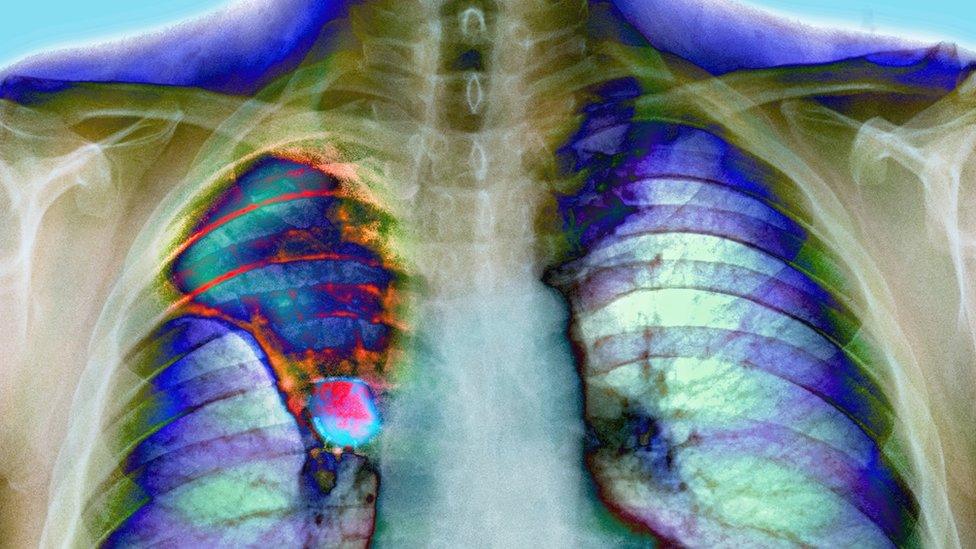'London throat': Toxic brake dust could cause condition, scientists say
- Published

Scientists say metal brake dust particles might be contributing to illnesses like pneumonia and bronchitis
Dust from worn-out brake pads could have the same harmful impact as diesel emissions, according to scientists.
Tests carried out by King's College London,, external show metallic abrasion dust can cause inflammation of the lungs and reduce immunity, increasing the risk of respiratory infections.
Scientists said the metal particles could be contributing to serious illnesses like pneumonia or bronchitis.
They added brake dust could be behind a condition known as "London throat".
Sufferers experience intermittent bouts of runny noses, and the low-level illness can lead to more serious infections.
The scientists found that vanadium, a metal present in both brake dust and diesel exhaust fumes, might be responsible for harmful effects on immune cells.

Bacteria infecting a macrophage
Macrophages - the lungs' front-line defence system which kill bacteria by engulfing and digesting them - were exposed in a lab to dust taken from a brake pad testing factory.
When exposed to particulates from diesel exhaust and brake dust, the researchers found the ability of the macrophages to destroy bacteria was reduced.
Dr Liza Selley, who conducted the research, said: "Worryingly, this means that brake dust could be contributing to what I call 'London throat' - the constant froggy feeling and string of coughs and colds that city dwellers endure."
Dr Ian Mudway said: "There is no such thing as a zero-emission vehicle and as regulations to reduce exhaust emissions kick in, the contribution from these sources are likely to become more significant."
The team said further studies were needed to understand more about the effects of brake dust on human health.
- Published21 October 2019
